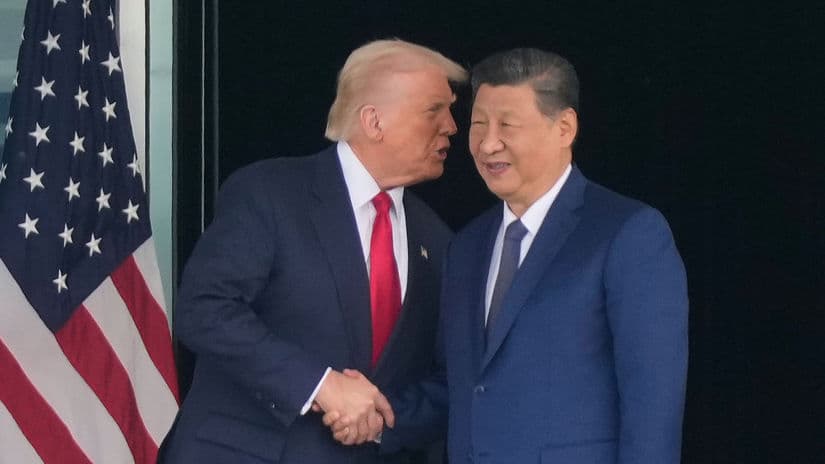Asked if he would send US troops into action in the event of a Chinese invasion, Trump replied:"You'll find out if it happens, and he (Xi Jinping) knows the answer." He declined to provide further details.
The US president also reiterated that Beijing would not take military action against Taiwan as long as he was president of the US. He also added that the Taiwan issue was not a topic of his meeting with Xi Jinping in South Korea on Thursday.
The pinnacle of the Chinese air force. A J-36 fighter jet landing.
Meanwhile, Chinese Defense Minister Dong Jun said Friday that the"reunification" of China and Taiwan is an "unstoppable historical trend," during a meeting with his U.S. counterpart, Pete Hegseth, in Malaysia.
China considers democratically-run Taiwan a rebel province and a legitimate part of its territory. It exerts military pressure on the island by sending warships and aircraft to its vicinity. Under Beijing's official one-China policy, the island does not have a separate political entity. Taiwan has operated de facto independently since 1949, has its own government and holds its own elections.
Mainland China considers Taiwan part of its territory, even though the island has had an independent government since 1949. Communist Beijing has repeatedly declared that it will one day take control of Taiwan, and has not ruled out the use of military force to achieve this goal. It regularly sends warships and aircraft to the area. Under Beijing's official one-China policy, the island does not have a separate political entity. The United States has a legal obligation to support the island's defense under a 1979 law.

